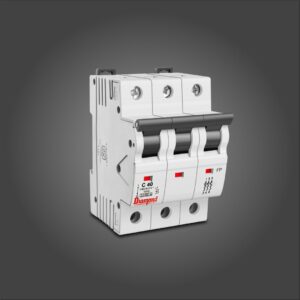SequelNet’s Guide to IT Compliance in Energy Operations
Introduction
In the energy sector, IT compliance is crucial for ensuring operational efficiency, protecting sensitive data, and maintaining regulatory standards. As energy operations become increasingly digitized, organizations must navigate complex compliance requirements while safeguarding their information systems. This guide from SequelNet outlines essential strategies for achieving IT compliance in energy operations, with a focus on the role of commercial VPN solutions in enhancing security and data protection.
Understanding IT Compliance in Energy Operations
What is IT Compliance?
IT compliance refers to the adherence to laws, regulations, and industry standards governing the management of information technology. In the energy sector, compliance is vital for a variety of reasons:
- Regulatory Requirements: Energy companies must comply with a range of regulations relating to data protection, environmental standards, and operational safety.
- Data Security: Protecting sensitive information from breaches and cyber threats is essential for maintaining the trust of stakeholders and customers.
- Operational Integrity: Ensuring that IT systems function correctly and securely is critical for maintaining the reliability of energy supply and infrastructure.
Key Compliance Regulations
Energy companies often need to comply with several regulatory frameworks, including:
- The Federal Energy Regulatory Commission (FERC): Regulates the transmission and wholesale sale of electricity in interstate commerce.
- The Energy Policy Act: Establishes various requirements for energy efficiency and renewable energy.
- The General Data Protection Regulation (GDPR): Applies to data protection and privacy for individuals within the European Union and the European Economic Area.
The Role of Commercial VPN Solutions in IT Compliance
1. Enhanced Data Security
One of the most significant advantages of implementing commercial VPN solutions is the enhanced security they provide. Here’s how VPNs contribute to IT compliance:
- Data Encryption: VPNs encrypt data transmitted over the internet, protecting sensitive information from interception and unauthorized access. This is especially important for energy companies that handle confidential operational data and customer information.
- Secure Remote Access: With a commercial VPN, employees can securely access the company’s network from remote locations. This capability is essential for field workers and teams that need to connect to the main office while on-site at energy facilities.
2. Compliance with Regulatory Standards
Implementing a commercial VPN can help energy companies meet various regulatory compliance requirements:
- Access Controls: VPN solutions often come with features that allow organizations to implement strict access controls. This ensures that only authorized personnel can access sensitive data, thereby complying with regulations that mandate data protection measures.
- Audit Trails: Many commercial VPN solutions offer logging and monitoring features that create audit trails. These records can be invaluable for demonstrating compliance during regulatory audits and assessments.
3. Improved Incident Response
In the event of a data breach or security incident, commercial VPN solutions can enhance an organization’s incident response capabilities:
- Quick Mitigation: By securely isolating affected systems through VPN technology, organizations can quickly contain breaches and minimize damage.
- Detailed Reporting: VPNs can generate detailed reports on access patterns and potential breaches, providing insights that can help organizations improve their compliance strategies.
Best Practices for IT Compliance in Energy Operations
1. Conduct Regular Compliance Audits
Regular audits are essential for identifying compliance gaps and ensuring that IT systems meet regulatory standards. Organizations should:
- Schedule periodic audits to assess compliance with relevant regulations.
- Review security policies and procedures to ensure they align with industry best practices.
2. Implement Robust Security Measures
Beyond VPN solutions, energy companies should adopt a comprehensive security framework that includes:
- Firewalls and Intrusion Detection Systems (IDS): Protect networks from unauthorized access and monitor for suspicious activities.
- Encryption Protocols: In addition to VPN encryption, implement encryption for stored data to safeguard sensitive information.
3. Provide Employee Training
Employees play a critical role in maintaining IT compliance. Organizations should:
- Conduct regular training sessions on cybersecurity best practices and compliance requirements.
- Ensure that employees understand the importance of data protection and their role in maintaining compliance.
4. Leverage Technology Solutions
In addition to commercial VPN solutions, consider other technology tools that can enhance compliance efforts:
- Data Loss Prevention (DLP): Implement DLP solutions to prevent unauthorized sharing of sensitive information.
- Identity and Access Management (IAM): Use IAM systems to manage user identities and access rights effectively.
Conclusion
Achieving IT compliance in energy operations is a multifaceted challenge that requires a strategic approach. By leveraging commercial VPN solutions, energy companies can enhance their data security, comply with regulatory standards, and improve incident response capabilities.
SequelNet is committed to helping energy organizations navigate the complexities of IT compliance. With tailored solutions and expert guidance, we can support your efforts to protect sensitive data and ensure operational integrity. To learn more about how we can assist your organization, visit SequelNet’s website.














Post Comment